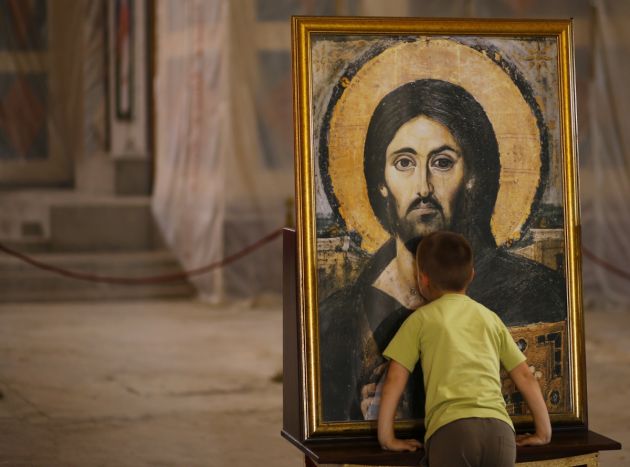Serbian priest who beat addict to death jailed for 20 years

BELGRADE (Reuters) - A Serbian priest was jailed for 20 years on Friday for beating to death a drug addict in his care, his lawyer said, in the latest blow to the reputation of Serbia's influential Orthodox Church.
A court in the western town of Sabac found priest Branislav Peranovic guilty of second-degree murder, saying he punched, kicked and beat to death addict Nebojsa Zarubac with a 1.5-metre stick in August 2012.
Peranovic was already known to church authorities for his violent methods of treatment after a video surfaced in 2009 showing him beating addicts at another church-run facility. He was removed from his post but remained a priest and set up another rehab centre.
"The sentence could have been greater, given the brutality, the way in which he was killed," said the victim's father, Milos Zarubac, according to Serbian Radio B92.
The case comes against a backdrop of rising friction between the church and Serbia's government, which have clashed over Belgrade's increasingly conciliatory position on the country's former province of Kosovo.
The verdict follows sex scandals involving at least two Orthodox bishops, including videos and audio-recordings leaked to Serbian newspapers.
Critics accuse church leaders of turning a blind eye, having for years enjoyed the protection of successive governments keen to curry favour with the Orthodox faithful.
Serbia's Orthodox church grew in statue with the collapse of socialist Yugoslavia and the wars of the 1990s. But its cosy ties with political leaders have been tested this year by the more conciliatory stance taken by the current ruling coalition towards Kosovo, which broke away in a 1998-99 war and declared independence in 2008.
The church accused the government of betrayal after it agreed to cede de facto control over a small Serb pocket of the ethnic Albanian-majority territory in a landmark accord in April, in return for the promise of membership talks with the European Union.
Many Serbs consider Kosovo the cradle of their nation and Orthodox faith, home to some of the church's most prized monasteries. But Prime Minister Ivica Dacic, himself a nationalist, has told the church to stay out of politics.
"The government is hitting back," said Nenad Sebek, director of the Centre for Democracy and Reconciliation in Southeastern Europe. "It is drawing a line in the sand to tell the church how far it may go."
(Editing by Matt Robinson and Andrew Roche)